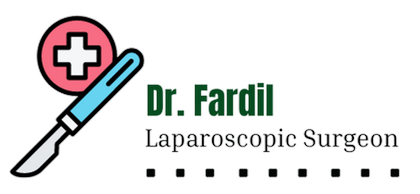
Laser Procto-Surgery
Best Laser Procto Surgeon in Dhaka
Laser proctology surgery represents a cutting-edge approach in the field of proctology, offering innovative and minimally invasive solutions for a range of anal and rectal disorders. Proctology, the branch of medicine focused on the diagnosis and treatment of conditions affecting the rectum and anus, has seen significant advancements with the incorporation of laser technology. In this comprehensive guide, we will explore the applications of laser proctology surgery, the advantages it offers over traditional methods, the conditions it can address, and the postoperative care associated with this modern surgical technique.
Understanding Laser Proctology Surgery:
Laser proctology surgery involves the use of laser technology to diagnose and treat various conditions affecting the rectum and anus. The laser serves as a precise and focused tool that can cut, coagulate, or vaporize tissues, offering several advantages over traditional surgical methods. This approach is minimally invasive, reduces bleeding, and often leads to faster recovery times for patients.
Applications of Laser Proctology Surgery:
Laser proctology surgery finds applications in the treatment of various anal and rectal disorders, including:
Hemorrhoids:
- Laser technology is frequently used to treat hemorrhoids, a common condition characterized by swollen and inflamed veins in the rectum or anus. Laser hemorrhoidectomy can provide efficient removal of hemorrhoidal tissue with reduced postoperative pain and a faster recovery compared to traditional methods.
Fistulas:
- Anal fistulas, abnormal tunnels that form between the anal canal and the skin, can be effectively treated with laser surgery. The laser helps in precise cutting and closure of the fistulous tract, promoting better healing.
Fissures
:- Anal fissures, small tears in the lining of the anus, can be addressed with laser sphincterotomy. This procedure involves using the laser to make a small incision in the anal sphincter, relieving pressure and promoting healing.
Pilonidal Sinus:
- Laser proctology surgery is increasingly utilized for the treatment of pilonidal sinus, a condition where a cyst or abscess forms in the cleft of the buttocks. Laser excision offers a less invasive alternative to traditional surgical methods.
Condyloma (Anal Warts):
- Laser surgery is effective in the removal of anal warts caused by human papillomavirus (HPV). The laser precisely ablates the warts, minimizing damage to surrounding healthy tissue.
Polyps and Tumors:
- Small polyps and tumors in the rectum or anus can be removed using laser surgery. This approach allows for precise tissue removal while minimizing the risk of complications.
III. Advantages of Laser Proctology Surgery:
The adoption of laser technology in proctology surgery provides several advantages for both patients and healthcare providers:
Minimally Invasive:
- Laser proctology surgery is minimally invasive compared to traditional surgical methods. This results in smaller incisions, reduced trauma to surrounding tissues, and less postoperative pain.
Precision and Accuracy:
- The focused nature of the laser allows for precise cutting or vaporization of tissues, enhancing the surgeon’s ability to target specific areas with accuracy.
- Reduced Bleeding:
- The laser’s ability to coagulate blood vessels as it cuts reduces bleeding during surgery, contributing to a clearer surgical field and minimizing the need for additional interventions to control bleeding.
Faster Recovery:
- Patients undergoing laser proctology surgery often experience faster recovery times. The reduced trauma to tissues and minimized postoperative discomfort contribute to an expedited return to normal activities.
Lower Infection Risk:
- The precision of laser surgery helps minimize damage to surrounding healthy tissue, reducing the risk of infection and promoting a more controlled healing process.
Outpatient Procedures:
- Many laser proctology surgeries can be performed on an outpatient basis, allowing patients to return home on the same day of the procedure.
Conditions Addressed by Laser Proctology Surgery:
Hemorrhoids:
- Laser hemorrhoidectomy involves using the laser to cut or vaporize hemorrhoidal tissue. This minimally invasive approach offers effective relief from symptoms such as bleeding, swelling, and discomfort associated with hemorrhoids.
Anal Fissures:
- Laser sphincterotomy is a procedure where the laser is used to make a small incision in the anal sphincter to alleviate pressure and promote healing of anal fissures.
Anal Fistulas:
- Laser surgery can be employed to precisely cut and close fistulous tracts, offering a more targeted approach to the treatment of anal fistulas.
Pilonidal Sinus:
- Laser excision is utilized for the removal of pilonidal sinuses, providing a less invasive alternative to traditional surgical methods.
Condyloma (Anal Warts):
- Laser ablation is an effective method for the removal of anal warts, addressing the lesions caused by HPV.
Polyps and Tumors:
- Laser surgery is employed for the removal of small polyps and tumors in the rectum or anus, allowing for precise tissue removal.
Postoperative Care and Recovery:
While laser proctology surgery is associated with faster recovery times, postoperative care is essential to ensure optimal healing and reduce the risk of complications. Some general guidelines for postoperative care may include:
Pain Management:
- Patients may be prescribed pain medications to manage postoperative discomfort. Over-the-counter or prescription pain relievers may be recommended.
Hygiene Practices:
- Maintaining proper hygiene is crucial for preventing infection. Patients are often advised to keep the surgical area clean and follow specific hygiene practices outlined by their healthcare provider.
Dietary Modifications:
- Dietary recommendations may be provided to promote regular bowel movements and prevent straining. Adequate fiber intake and hydration are often emphasized.
Activity Restrictions:
- While laser proctology surgery is minimally invasive, patients are typically advised to avoid heavy lifting and strenuous activities during the initial recovery period.
Follow-up Appointments:
- Scheduled follow-up appointments with the healthcare provider are important for monitoring the healing process, addressing any concerns, and ensuring the success of the surgical intervention.
Potential Considerations and Risks:
While laser proctology surgery offers numerous advantages, it’s important to be aware of potential considerations and risks:
Skill and Expertise:
- The success of laser proctology surgery often relies on the skill and expertise of the surgeon. Patients should seek out experienced healthcare providers who specialize in laser proctology procedures.
Cost:
- Laser technology may incur additional costs compared to traditional surgical methods. Patients should discuss financial considerations with their healthcare provider and insurance company.
Not Applicable for All Conditions:
- Laser proctology surgery may not be suitable for all conditions or cases. The decision to use laser technology is often based on the specific characteristics of the condition and the patient’s overall health.
Infection Risk:
- While the risk of infection is generally lower with laser surgery, it is not entirely eliminated. Patients should adhere to postoperative care guidelines to minimize the risk of infection.
Recurrence:
- In some cases, there may be a risk of recurrence, especially for conditions such as hemorrhoids or anal fistulas. Regular follow-up appointments are important for monitoring and addressing any recurrence.
Conclusion:
Laser proctology surgery represents a remarkable advancement in the field of proctology, providing patients with innovative and minimally invasive solutions for anal and rectal disorders. The precision, reduced invasiveness, and faster recovery times associated with laser technology contribute to its growing popularity in the treatment of conditions such as hemorrhoids, anal fissures, and anal fistulas.
As with any medical procedure, the decision to undergo laser proctology surgery should be made in consultation with a qualified healthcare provider. Patients should be well-informed about the specific advantages, considerations, and potential risks associated with laser proctology surgery to make empowered decisions about their healthcare. With skilled surgeons, proper postoperative care, and adherence to follow-up appointments, individuals can experience the benefits of this modern surgical approach in managing various proctological conditions.
emergency
Lorem ipsum dolor sit amet, consectetur adipiscing elit. Ut elit tellus, luctus nec ullamcorper mattis, pulvinar dapibus leo.
